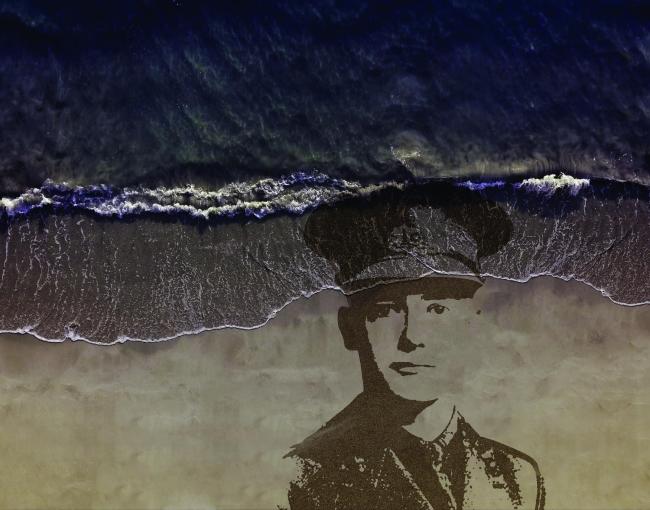
A SONNET written by the Poet Laureate for Danny Boyle’s national event to mark the centenary of the end of the First World War has been unveiled.
Poet Laureate Carol Ann Duffy was asked by the filmmaker to write something for Pages of the Sea, his commission to mark the centenary of Armistice Day on November 11.
Sunderland and Redcar are among the coastal towns and cities to take part in the event, which will see large portraits drawn in the sand on Roker and Redcar beaches, which will be washed away as the tide comes in.

The event is named after the last line in Duffy’s poem, The Wound in Time, in which she mourns those lost in the war. “History might as well be water, chastising this shore; / for we learn nothing from your endless sacrifice. / Your faces drowning in the pages of the sea,” she writes.
Helen Green, producer of the Sunderland and Redcar events, said: “It’s a moving, hauntingly beautiful poem – a reminder of the hundreds of thousands of young people who left these shores full of hope and optimism, but who didn’t return.
“It’s also about the futility of war and the fact that we don’t appear to have learned anything from the sacrifices of a generation.”
 Carol Ann Duffy, poetry reading date in Thirsk
Carol Ann Duffy, poetry reading date in Thirsk
In addition to the etching of the casualty into the sand, and Carol Ann Duffy’s poem, the Sunderland event will feature a choir led by Catherine Stephens of The Cornshed Sisters. Singers will perform Look to the Sea, a song written by Bristol singer songwriter Heg Brignall.
The public will also be asked to join in by creating silhouettes of people in the sand, remembering the millions of lives lost or changed forever by the conflict.
The Wound in Time
It is the wound in Time. The century’s tides,
chanting their bitter psalms, cannot heal it.
Not the war to end all wars; death’s birthing place;
the earth nursing its ticking metal eggs, hatching
new carnage. But how could you know, brave
as belief as you boarded the boats, singing?
The end of God in the poisonous, shrapneled air.
Poetry gargling its own blood. We sense it was love
you gave your world for; the town squares silent,
awaiting their cenotaphs. What happened next?
War. And after that? War. And now? War. War.
History might as well be water, chastising this shore;
for we learn nothing from your endless sacrifice.
Your faces drowning in the pages of the sea.
Carol Ann Duffy



Comments: Our rules
We want our comments to be a lively and valuable part of our community - a place where readers can debate and engage with the most important local issues. The ability to comment on our stories is a privilege, not a right, however, and that privilege may be withdrawn if it is abused or misused.
Please report any comments that break our rules.
Read the rules here